Mozambique
Mozambique, in long form the Republic of Mozambique is a state located on the eastern coast of the African continent. It is surrounded by South Africa, Eswatini, Madagascar, Zimbabwe, Zambia, Malawi and Tanzania. It is a former Portuguese colony, the first Portuguese-speaking country in Africa, ahead of Angola, by its population and the second by its area. The country is a member of the Community of Portuguese Speaking Countries (CPLP), the International Organization of La Francophonie (OIF), the Commonwealth and the Organization of Islamic Cooperation.
Mozambique’s history
Before the year 1000, many commercial exchanges were carried out with Arab traders but also from the West of the Indonesian archipelago. Thus a Persian captain, Ibn Shahriyar, in his Book of Wonders of India, reports the testimony of an Arab merchant by the name of Ibn Lakis who, in 945, sees arriving on the coast of Mozambique a thousand mounted boats by Waq-Waq who come from islands “located opposite China” to look for products and zeng slaves, an Arabic word which at the time designated the inhabitants of the east coast of Africa. A large part of the coastal population in the north is already converted to Islam.
The year 1498 marks the arrival of the Portuguese navigator Vasco de Gama. Shortly after, the Portuguese set up counters and build forts. The Portuguese presence lasts five centuries. The coast of Mozambique and especially the island of the same name became a major stopover on the long voyage which led the Portuguese ships from Lisbon to India. We supplied ourselves with fresh food and drinking water. In 1964, FRELIMO launched the Mozambique war of independence which continued for ten years. FRELIMO does not wait for the withdrawal of Portuguese troops from Angola to develop its own administration in the “liberated” regions. The number of schools and literacy is increasing, health centers are created and agricultural crops are developed, organized by the movement. In 1973, the first “party committees” were created and the “Party School”, responsible for the ideological training of its cadres. Although the literature on the political organization of these regions is scarce, it seems that FRELIMO has sought to encourage the peasants to participate in decisions rather than entrusting power to its representatives.
At the end of the war of independence of Mozambique, the country obtains its independence on June 25, 1975, under the name of People’s Republic of Mozambique and becomes a communist regime which the old independence movement, FRELIMO, directs as a single party . Samora Machel is elected president and implements a certain number of reforms, in particular agrarian. The regime of Samora Machel also undertakes an authoritarian struggle against tribalism and tries to reduce the influence of religions, which will be badly accepted by a part of the population. The first year of independence is full of hope, and the regime finds many supporters in the socialist camp (USSR, Cuba, Yugoslavia), as in the western left. But the south of the country is experiencing a complicated situation due to the proximity of Rhodesia and South Africa, both hostile to the new power, and accusing it of gathering opponents. From 1976 an armed conflict began, which degenerated into a bloody civil war. The ReNaMo, anti-Marxist and supported by South Africa and the United States, maintains a guerrilla war which spreads and kills nearly a million people in fifteen years. It also causes the country to go bankrupt. For economists, it became the poorest country in the world in 1986, a year which also saw President Samora Machel die in a plane crash. Joaquim Chissano is part of the central committee of FRELIMO which ensures the interim at the head of the State. On November 6, 1986, he alone took over the presidency of the Republic. At the end of the civil war, in 1992, the agreements of peace allow the establishment of a democracy of Western type: the FRELIMO, having given up the Marxist-Leninist ideology, remains in power by the ballot box, Joaquim Chissano was elected president in the 1994 presidential election, while the ReNaMo was demilitarized and became a legal party.
In 1995, Mozambique entered the Commonwealth when it had never been administered by the United Kingdom. At the end of the 1990s, Canadian “junior companies”, invested in more than 8,000 mining properties, in more than 100 countries, most of them still in the planning stage, multiplied contracts with African countries, including Mozambique. , where Beacon Hill Resources operates a coal mine. Armando Guebuza, of FRELIMO, was president from February 2005 to January 2015. Filipe Nyusi, still of FRELIMO succeeded him in 2015. From 2017, several attacks by Islamist groups took place in the north of the country that the government was trying to combat. President Filipe Nyusi, candidate for the ruling party, FRELIMO, was re-elected in October 2019 for a second five-year term with 73% of the vote. His party, FRELIMO, won 184 of the 250 seats in the National Assembly and led all ten of the country’s provinces. The conditions of the poll and the results of this election are once again contested. In February 2019, a cyclone caused at least 650 deaths, hundreds of thousands of displaced people, more than 1.8 million people on humanitarian assistance and considerable economic damage.
Mozambique’s politics
Mozambique is a republic. The President is elected for a five-year term. From independence, power was in the hands of a dominant political party, the Mozambique Liberation Front (FRELIMO). In the eyes of international observers and the opposition, the 2004 elections were marred by fraud and irregularities. Maputo is the capital of Mozambique. On June 29, 2015, a new penal code came into force in Mozambique, decriminalizing homosexuality and abortion.
Mozambique’s economy
Mozambique is one of the poorest countries in the world. Half of its population lives there below the poverty line. In 2012, the United Nations Development Program ranked Mozambique as the third least developed country in the world in its annual report, assigning it a human development index of just 0.327. The economy is essentially based on agriculture. About one in five workers work in the primary sector. From the 1970s to the 1990s, agriculture was fully collectivized. Since the 2000s, it has juxtaposed small family farms and large farms belonging to large companies. Farmers cannot meet food needs, but the country nevertheless exports cotton, sugar, coprahn, high production of cashews and high production of shrimp. The country was among the top eight cotton producers in East, South and North Africa in the mid-2010s.
The main development assets of the country are in the tourism and mining industries. In 2007, major underground mining projects were launched to exploit mineral sands, coal, gold, bauxite and tantalum. The economy and politics are in the hands of a very small elite descended from assimilados, Africans assimilated by the Portuguese during the colonial era, and another larger one coming from neighboring South Africa. Most of the workforce is poorly trained. The training system was influenced by the country’s colonial past, but with an underdeveloped secondary and university system. Portuguese colonization westernized the elites by imposing a Portuguese schooling, but just primary level. The elites who led the country to independence passed on the education they received to the masses. The economy is struck by the brain drain, the rare academics trained preferring to expatriate. International aid and investment have allowed the country to make some spectacular strides. GDP growth is roughly 7% each year. In 2009, Mozambique is the country with the lowest public debt as a percentage of gross domestic product with a rate of 3.7%. However, the discovery in April 2016 of hidden debt of more than two billion dollars, linked to opaque loans carried out by public enterprises, gives a brake on growth which drops to 3% between 2016 and 2017. The country declares itself in default in January 2017.
However, the lack of infrastructure, corruption and the high prevalence of AIDS (which has dramatically reduced life expectancy) are obstacles to development, as well as the presence of armed conflict or civil instability at its borders, or local unrest still subsisting sporadically following the long civil war, and environmental difficulties with their plots of populations displaced by severe flooding and periods of intense drought. From 2010, large gas reserves were discovered off the country’s northern coasts. They would constitute the 4th most important reserves in the world after Qatar, Russia and Iran. The location of these deposits is an asset due to their ease of transportation to the Asian market. By 2025, the country can also become one of the main producers of coal.
Mozambique’s demography
The country lost a lot of inhabitants during the slave trade and its civil war, and the young population (half of the inhabitants is under 20 years old) is increasing rapidly. Despite a high birth rate (5 children per woman), natural growth was hampered by the AIDS pandemic (12%). Access to contraception is limited. Beira and its surroundings were hit on March 15, 2019 by cyclone Idai with winds that blown up to 205 km / h. As of April 26, 2019, the death toll is over 600. It is the deadliest cyclone of the 2018-2019 cyclone season in the southwest Indian Ocean.
Mozambique’s education
The education level in Mozambique is nine years for boys and seven years for girls, which gives an average of 8 years of education (2005).
Mozambique’s language
Of the 43 languages listed in Mozambique, the main ones, by their number of speakers over 5 years old, according to the 1997 census, are: Emakhuwa (3,291,916 speakers, or 26.3% of the population over 5 years), xichangana (1,423,327, or 11.4%), elomwe (985,920, or 7.9%), Sena from Mozambique (876,057, or 7.0%), Portuguese ( 809,186, or 6.5%), and echwabo (786,715, or 6.3%). Regarding the Portuguese language, according to the 2007 census 50.4% of the population can speak it (80.8% in the city and 36.3% in the countryside) against 39.5% in 1997 and 24.4% in 1980 ; 12.8% use it as their main language at home (8.8% in 1997); and 10.7% consider it as their mother tongue (6.5% in 1997 and 1.2% in 1980). In Maputo, the capital, 42.9% of residents aged 5 and over have Portuguese as their mother tongue20 and 55.2% as their main language on a daily basis. Between 1997 and 2007 the Portuguese language progressed throughout the country. The Bantu languages represent the mother tongues of 85.2% of the country’s population (93.5% in 1997 and 98.8% in 1980).
-
Malawi
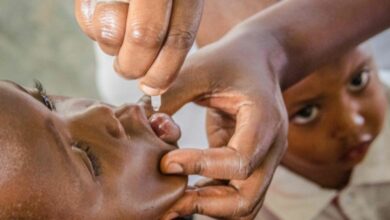
WHO: Mozambique Records Rise In Cholera Cases, Malawi Sees Decline
The World Health Organization (WHO) on Wednesday said Mozambique reported a spike in the number of cholera cases in the…
Read More » -
Mozambique
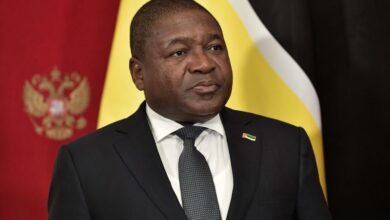
Mozambique Joins UNSC As A Non-Permanent Member For Next Two Years
Mozambique on Tuesday joined the United Nations Security Council (UNSC) as a non-permanent member replacing Kenya with a pledge to…
Read More » -
Mozambique
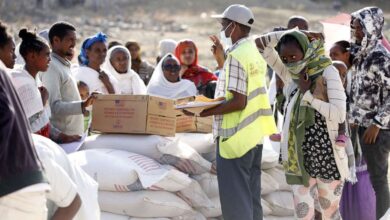
UN Appeals For Funding To Tackle Extreme Food Insecurity In Mozambique’s North
The United Nations (UN) on Friday warned Northern Mozambique is facing extreme food shortages and appealed for more funding to…
Read More » -
Mozambique
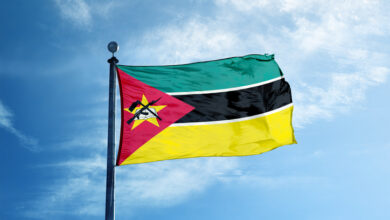
EU Pledges To Provide Additional Support For Military Mission To Mozambique
The European Union (EU) on Thursday said it will provide additional support for its military mission in Mozambique as Islamist…
Read More » -
Ethiopia
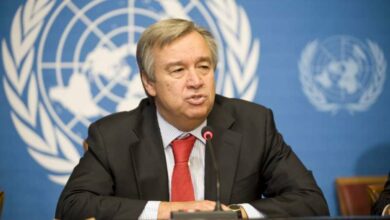
UN Chief: UN Will Probe Killing Of Children In Ukraine, Ethiopia, Mozambique
The United Nations (UN) chief Antonio Guterres on Monday said in a report that U.N. officials will investigate the killing…
Read More » -
Mozambique

Mozambique Gets Elected As A Non-Permanent Member Of UN Security Council
Mozambique has been elected as a non-permanent member of the United Nations Security Council (UNSC) for a two-year term beginning…
Read More » -
Mozambique
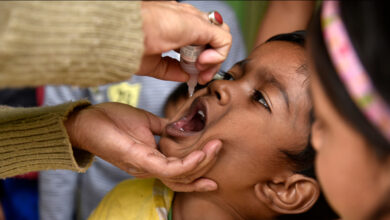
WHO: Mozambique Detects First Polio Case In 30 Years After Malawi Outbreak
The World Health Organization (WHO) on Wednesday said Mozambique has detected its first case of wild poliovirus in three decades,…
Read More » -
Mozambique
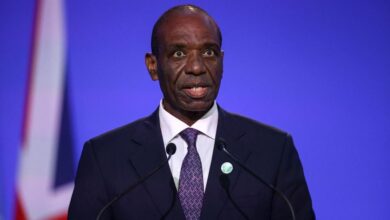
IMF Approves $456 Million Funding For Mozambique, Six Years After Financial Scandal
The International Monetary Fund (IMF) has announced that it has approved a financing agreement worth US$470 million (445 million euros)…
Read More » -
Mozambique

Mozambique President Nyusi Names Adriano Maleiane As Country’s New Prime Minister
Mozambique President Filipe Nyusi on Thursday named Adriano Afonso Maleiane as the country’s new prime minister reported Reuters. The announcement…
Read More » -
Mozambique
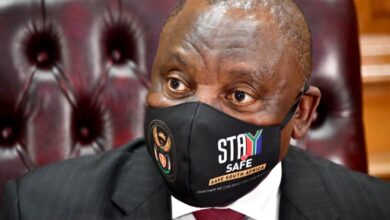
South African President Ramaphosa Hails Security Mission Progress In Mozambique
South African President Cyril Ramaphosa on Tuesday lauded significant progress made in tackling a militant insurgency in northern Mozambique after…
Read More » -
Mozambique
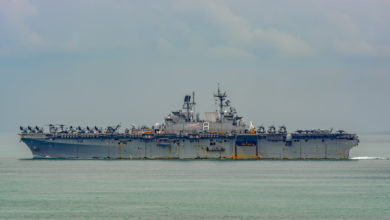
Mozambique: Former President’s Son Denies Involvement In Tuna Scandal
Former Mozambique President Armando Guebuza’s son, Ndambi Guebuza, on Monday, refuted allegations that he accepted bribes to get a $2bn…
Read More » -
Mozambique
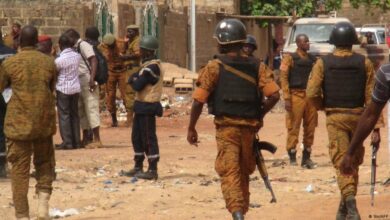
Rwandan Military Helps Mozambique Recapture Key Port City Held By Jihadists
The Rwandan military on Sunday announced they had recaptured control of a key port city in northern Mozambique from the…
Read More » -
Botswana

Botswana’s Government Deploys Troops To Mozambique To Fight Insurgency
Botswana’s government on Monday sent 296 troops to Mozambique to join soldiers from other Southern African Development Community, or SADC,…
Read More » -
Mozambique
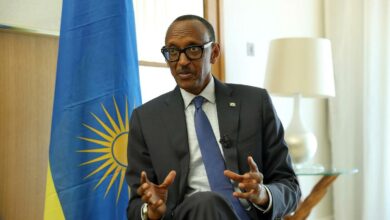
Rwandan Government To Deploy Forces To Battle Islamic Militants In Mozambique
The Rwandan government on Friday said it would deploy 1,000 security personnel in norther Mozambique’s Cabo Delgado province to help…
Read More » -
Mozambique
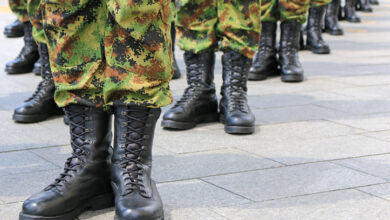
Southern African Nations’ Bloc Agrees To Deploy Military Troops To Mozambique
The Southern African Development Community (SADC) on Wednesday agreed to deploy troops to Mozambique to help control escalating violence in…
Read More » -
Mozambique
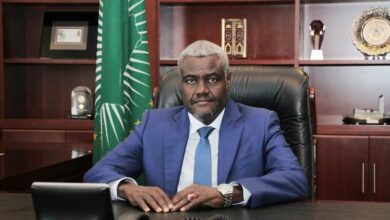
Mozambique: African Union Calls For Urgent Action After Recent Attack On Palma
The African Union Commission Chairperson Moussa Faki Mahamat on Thursday condemned the terrorist attacks in Mozambique and the recent violence…
Read More » -
Mozambique
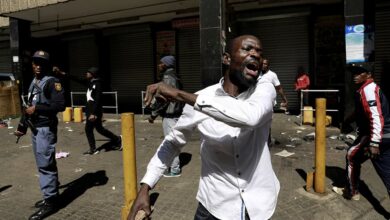
Amnesty International Accuses Mozambique Govt, Private Firms, Fighters Of War Crimes
International Rights Group Amnesty International on Tuesday accused Mozambique’s government forces, private military contractors, and armed groups of committing war…
Read More » -
Mozambique

Mozambique: UN Rights Chief Warns Cabo Delgado Violence Is A ‘Desperate’ Situation
The United Nations on Friday called for urgent measures to protect civilians in Mozambique’s northern Cabo Delgado province, who have…
Read More » -
Mozambique

Mozambique: Amnesty Calls Out Government To Investigate Abuses Against Rebels
International Rights Agency Amnesty International on Wednesday accused Mozambique government’s security forces of torturing suspected members of an Islamist insurgency…
Read More » -
Mozambique

Mozambique’s Top Court Dismisses Renamo’s Plea To Annul October Election Results
Mozambique’s top court has dismissed opposition party Renamo’s application to dismiss the results of the recently held general elections in…
Read More »

